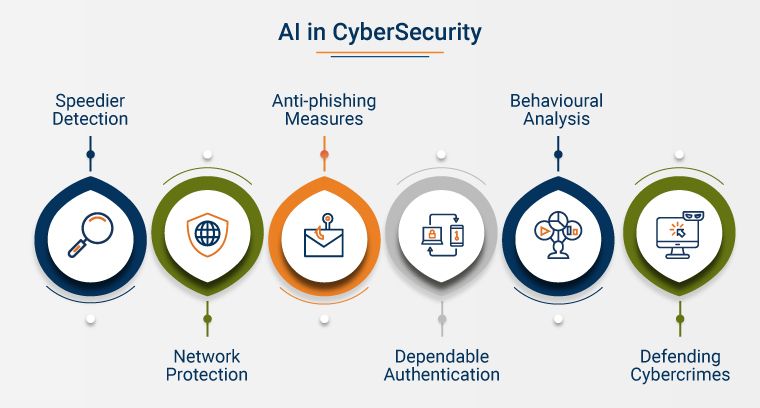
The Role of Artificial Intelligence in Cybersecurity
- 0
In today’s digital age, cybersecurity has become a critical concern for businesses and individuals alike. With the increasing number of cyber threats and attacks, there is a growing need for advanced technologies to protect sensitive information and data. One such technology that has emerged as a powerful tool in the fight against cyber threats is Artificial Intelligence (AI).
What is Artificial Intelligence?
Artificial Intelligence is a branch of computer science that focuses on the development of intelligent machines that can perform tasks that typically require human intelligence. AI technologies include machine learning, natural language processing, and computer vision, among others.
How AI is Revolutionizing Cybersecurity
AI is revolutionizing the field of cybersecurity by enabling organizations to detect and respond to threats in real-time. With the ability to analyze vast amounts of data at incredible speeds, AI-powered systems can identify patterns and anomalies that humans may miss. This proactive approach to cybersecurity allows organizations to stay one step ahead of cybercriminals.
Behavioral Analysis
One of the key benefits of AI in cybersecurity is its ability to conduct behavioral analysis. AI algorithms can learn normal behavior patterns within a network and quickly identify any deviations that may indicate a potential threat. This proactive approach helps organizations detect and respond to threats before they can cause damage.
Automated Response
AI-powered cybersecurity systems also offer automated response capabilities, allowing organizations to quickly contain and mitigate threats. By using machine learning algorithms, these systems can adapt and improve over time, becoming more effective at detecting and responding to cyber attacks.
Threat Intelligence
AI can also be used to analyze and interpret threat intelligence data from multiple sources. By automating the process of collecting and analyzing threat data, organizations can quickly identify emerging threats and take proactive measures to protect their networks.
Enhanced Endpoint Security
AI technologies can enhance endpoint security by analyzing user behavior and device interactions to identify potential threats. By continuously monitoring endpoints, AI-powered systems can detect and respond to suspicious activities in real-time, reducing the risk of data breaches.
Challenges of AI in Cybersecurity
While AI offers numerous benefits in the field of cybersecurity, there are also challenges that organizations must address. One of the main challenges is the potential for AI algorithms to be manipulated by cybercriminals, leading to false positives or negatives. Additionally, the complexity of AI systems requires specialized training and expertise, which can be a barrier for some organizations.
Conclusion
In conclusion, Artificial Intelligence is playing a crucial role in revolutionizing cybersecurity. By leveraging AI technologies for behavioral analysis, automated response, threat intelligence, and endpoint security, organizations can enhance their cybersecurity posture and better protect their sensitive information and data. While there are challenges to overcome, the benefits of AI in cybersecurity far outweigh the risks. As cyber threats continue to evolve, AI will undoubtedly play a central role in defending against these threats and securing the digital landscape.
With the power of Artificial Intelligence at their fingertips, organizations can stay ahead of cybercriminals and safeguard their networks from imminent cyber attacks.

